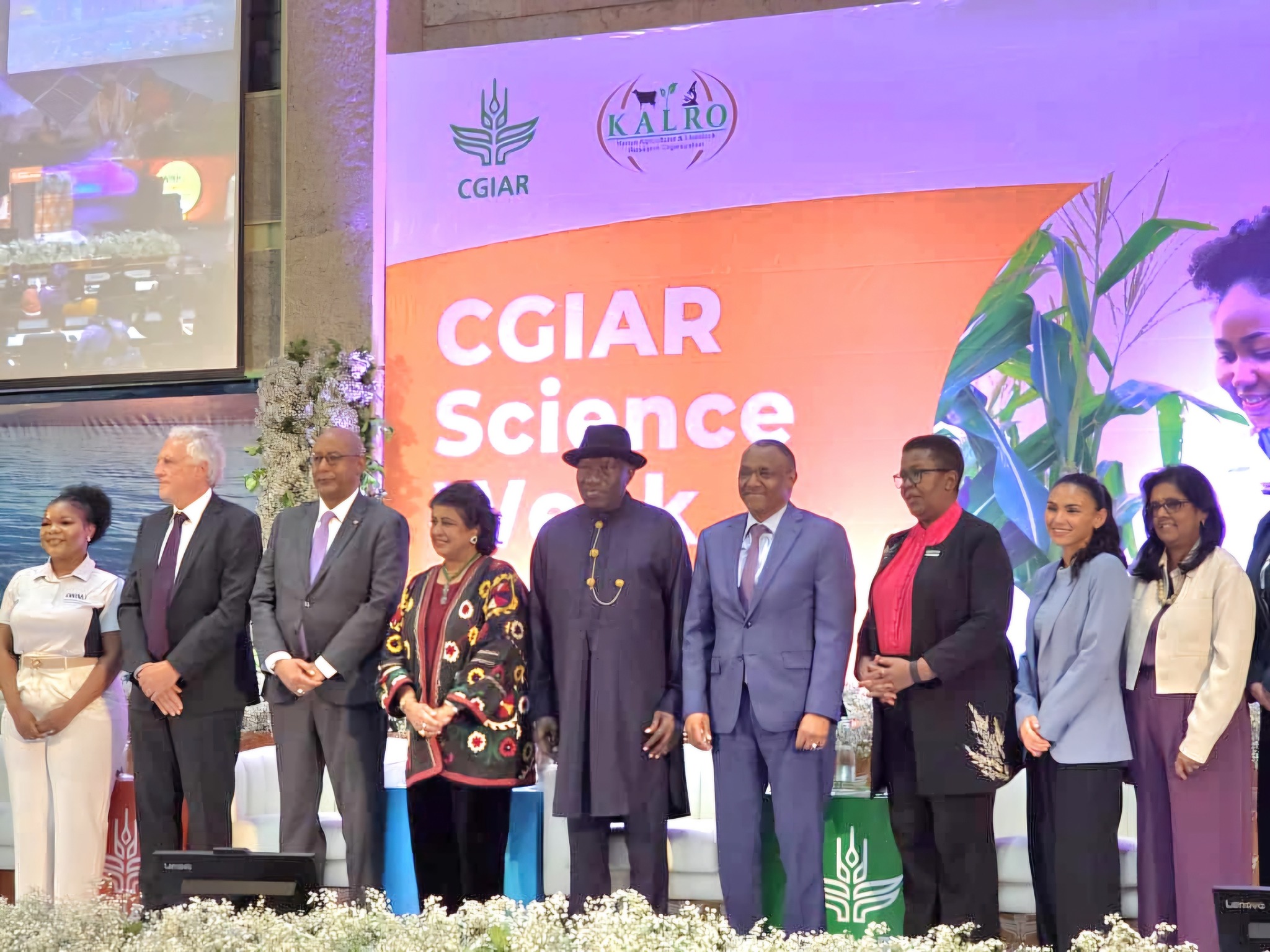
Jonathan Calls on African Leaders to Support Agriculture via Innovative Policies and Political Will
Former President Jonathan has stated that the only way to change agriculture and end hunger in Africa is for visionary leaders to have a strong political resolve.
According to Dr. Goodluck Ebele Jonathan, the former president, only leaders with a strong political will can create and carry out new agricultural policies that have the potential to significantly improve food production and lessen hunger in Africa.
In his keynote address at the first-ever CGIARS Science Week, which kicked off in Nairobi, Kenya, President Jonathan emphasized the value of using science and technology to advance agriculture and development on the continent, pointing out that political will is essential to its advancement.
The former president also gave advice to African leaders, telling them to focus more on issues pertaining to the welfare of the populace and to spend less time and money trying to maintain their position of power.
According to him, every African nation possesses a wealth of skilled and knowledgeable professionals who are capable of carrying out the duties of good governance; all it needs is committed and appropriate leadership to find and effectively include them.
“Even if the leader is not a scientist, he should appoint competent people in every discipline who will deploy their knowledge and expertise to move the country forward,” the former president said.
Jonathan, the president of Nigeria from 2010 to 2015, added: “We did very well in agriculture during the five years I was president of Nigeria. This was due to the fact that I appointed one of the top experts in that field as my minister of agriculture. He is currently Dr. Akin Adesina, President of the African Development Bank (AfDB).
In my opinion, you will always achieve positive outcomes if you put people in positions of leadership because they are capable and good, not because you know them or because they support your political party. Some of the ministers I appointed weren’t even there during the electioneering and voting process.
Adesina and Dr. Ngozi Okonjo-Iweala, the current director-general of the World Trade Organization (WTO), who served as my finance minister and economic coordinating minister, were not present in the nation during the election process.
“But I knew they would benefit the country, so I brought them in to hold different portfolios, and that’s how we managed our country’s economy,” he emphasized.
Jonathan emphasized the need for demand-driven research that is in line with local reality while discussing ways African leaders should use research to enhance policy implementation.
The International Institute for Tropical Agriculture (IITA) hosted a side event where he spoke and said: “Policies that are not informed by the lived experiences of the people they are meant to serve often fail to achieve their intended goals.”
The significance of consistency is another lesson; many research-backed initiatives take years to show effects, and frequent changes to policy can impede long-term advancement.
In addition, he called for governments to set up systems that integrate research into the formulation and implementation of policies and encouraged the private sector to participate in research and innovation as partners rather than only recipients.
In order to guarantee that research findings are not only published but actually put into practice for practical impact, he also promoted cooperation between governments, academia, and the commercial sector.
All Categories
Recent Posts
Al Ahly shows strong interest in Pimienta
Pirates lose to Chiefs in the Nedbank Cup final
Tags
+13162306000
zoneyetu@yahoo.com



